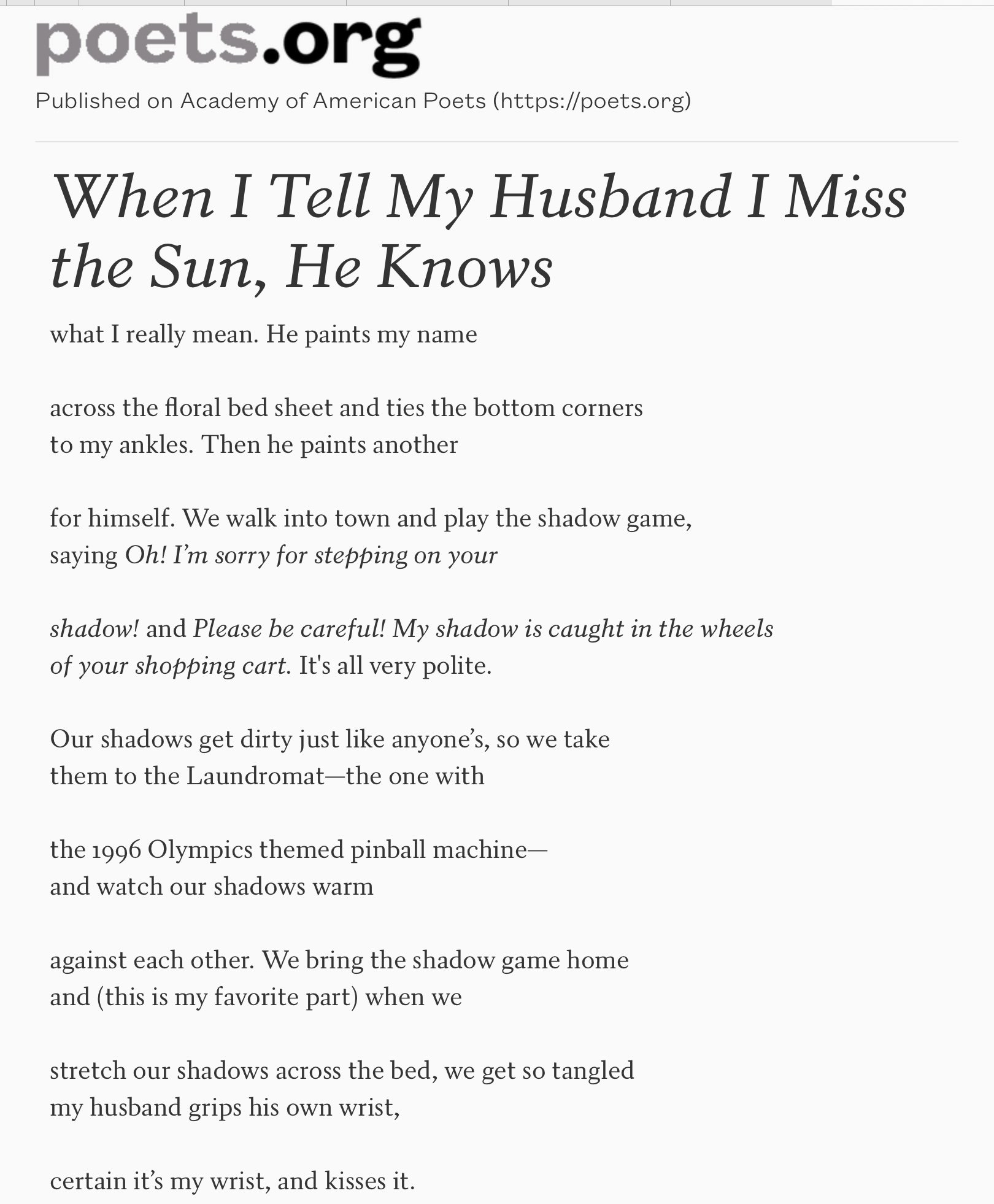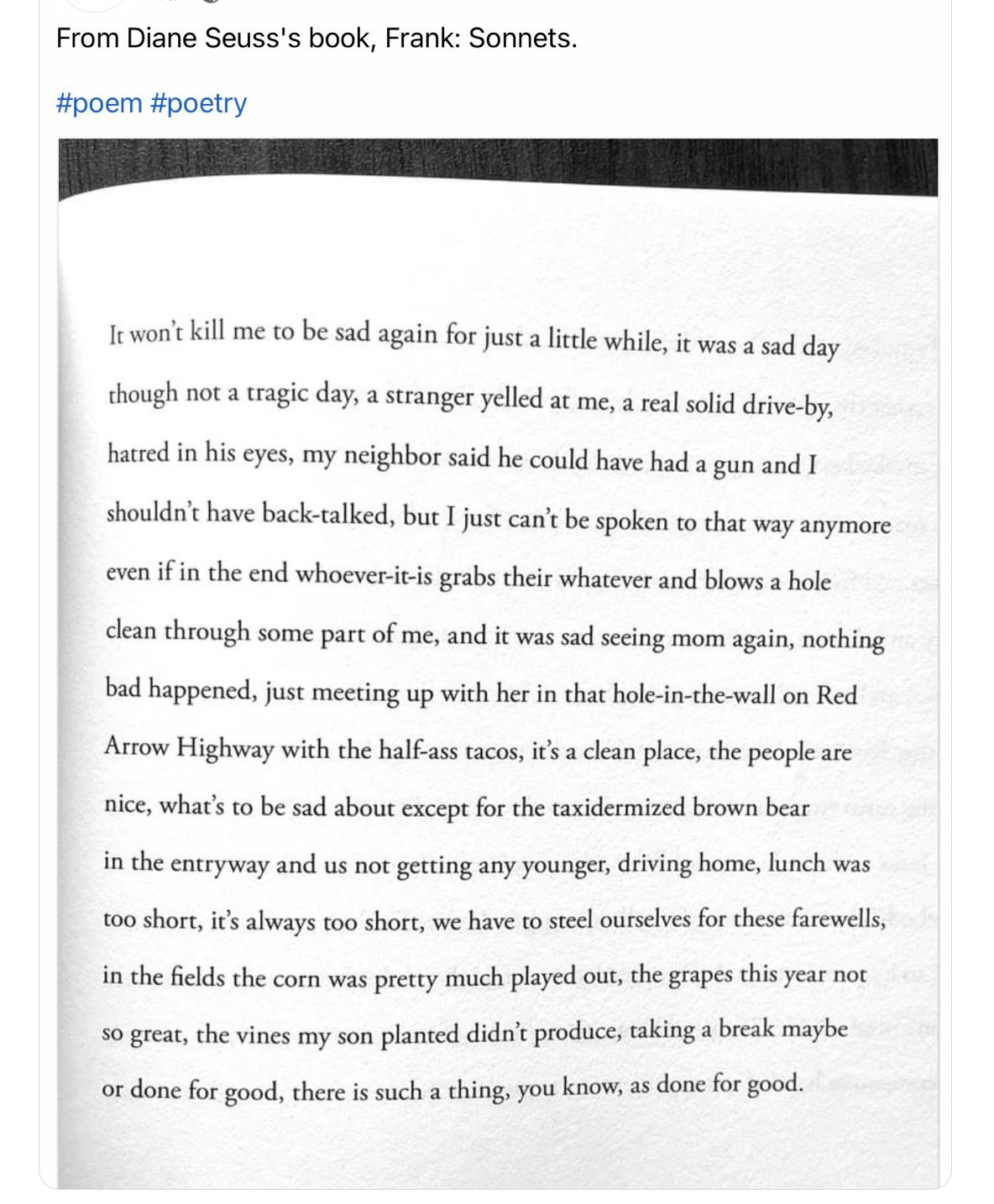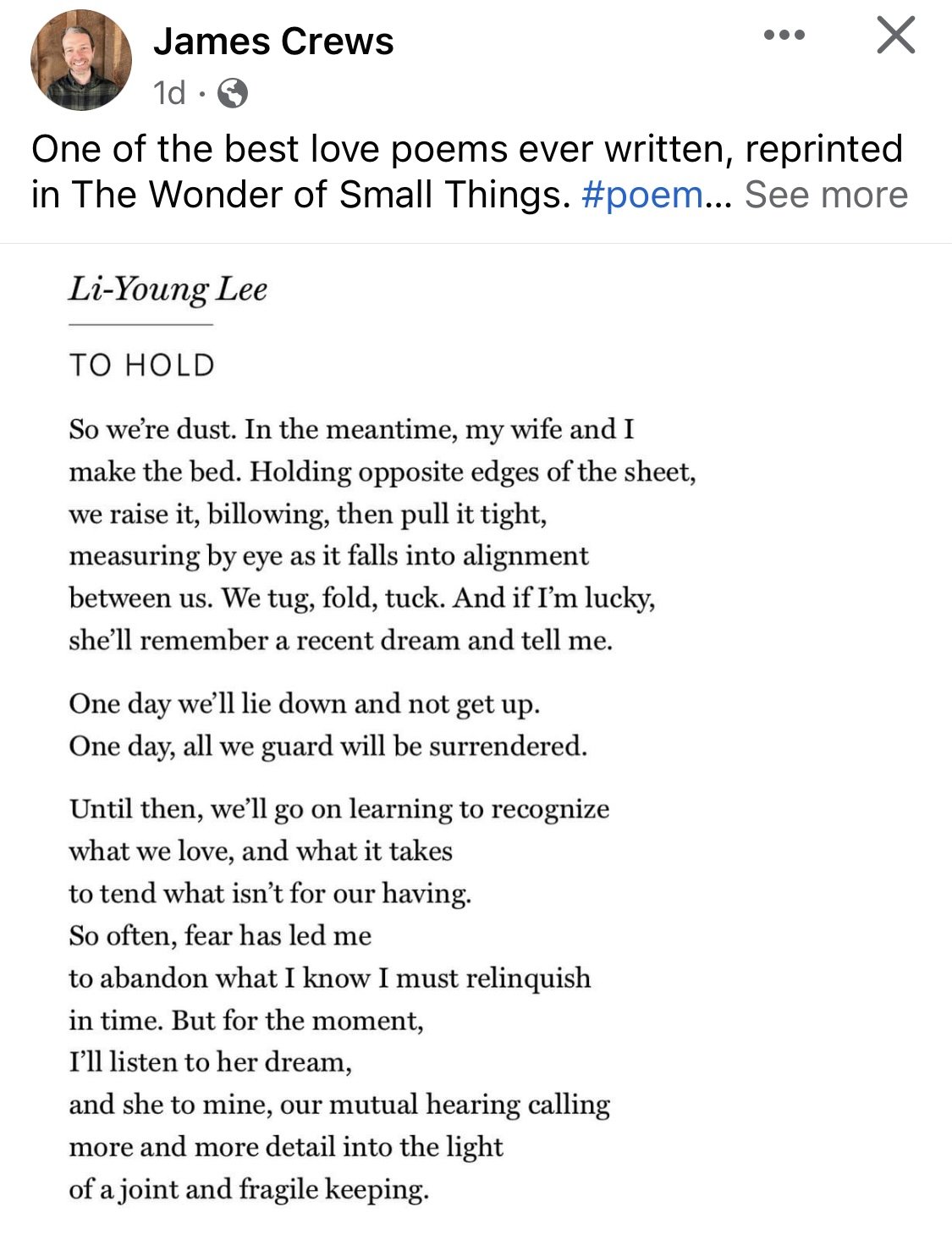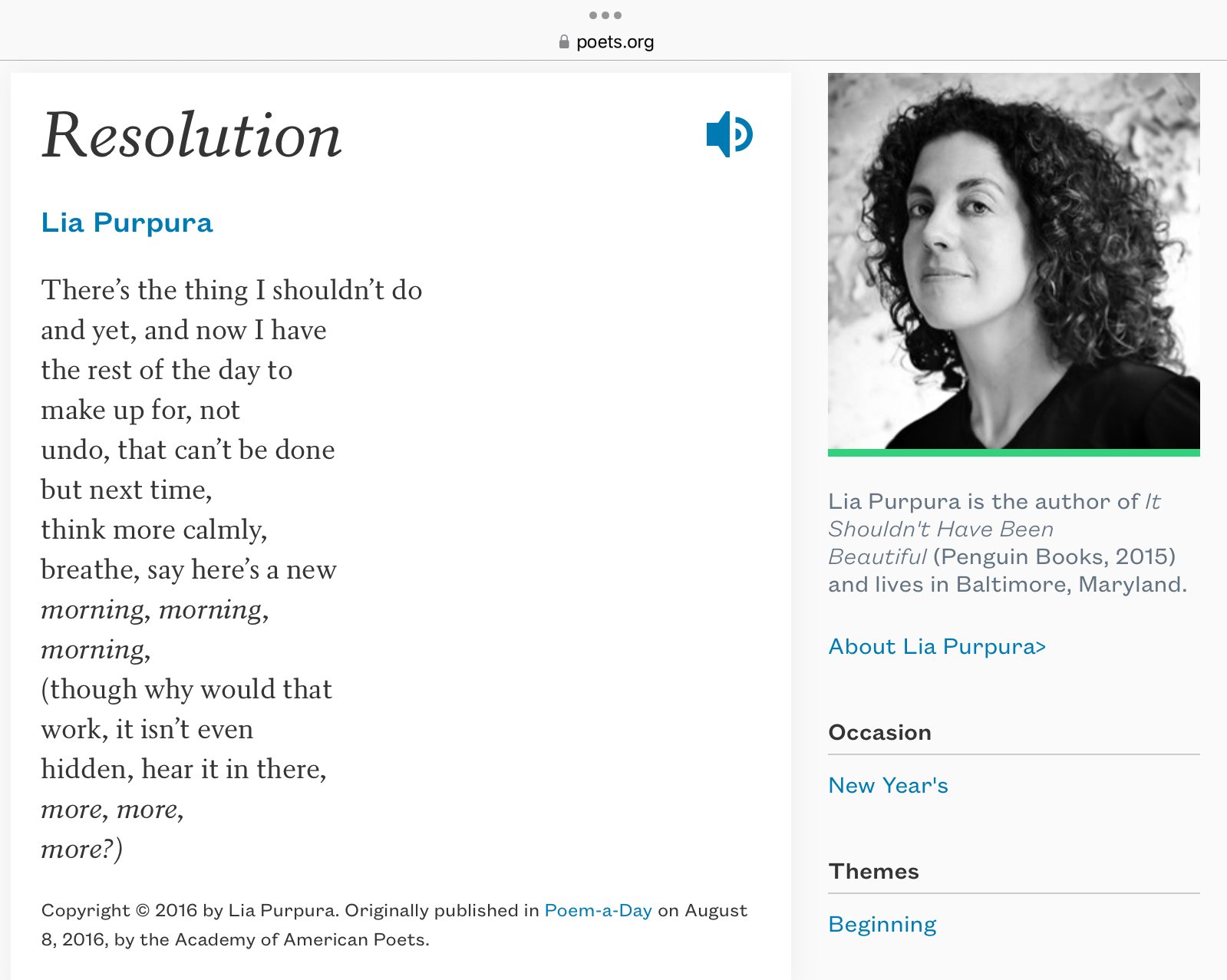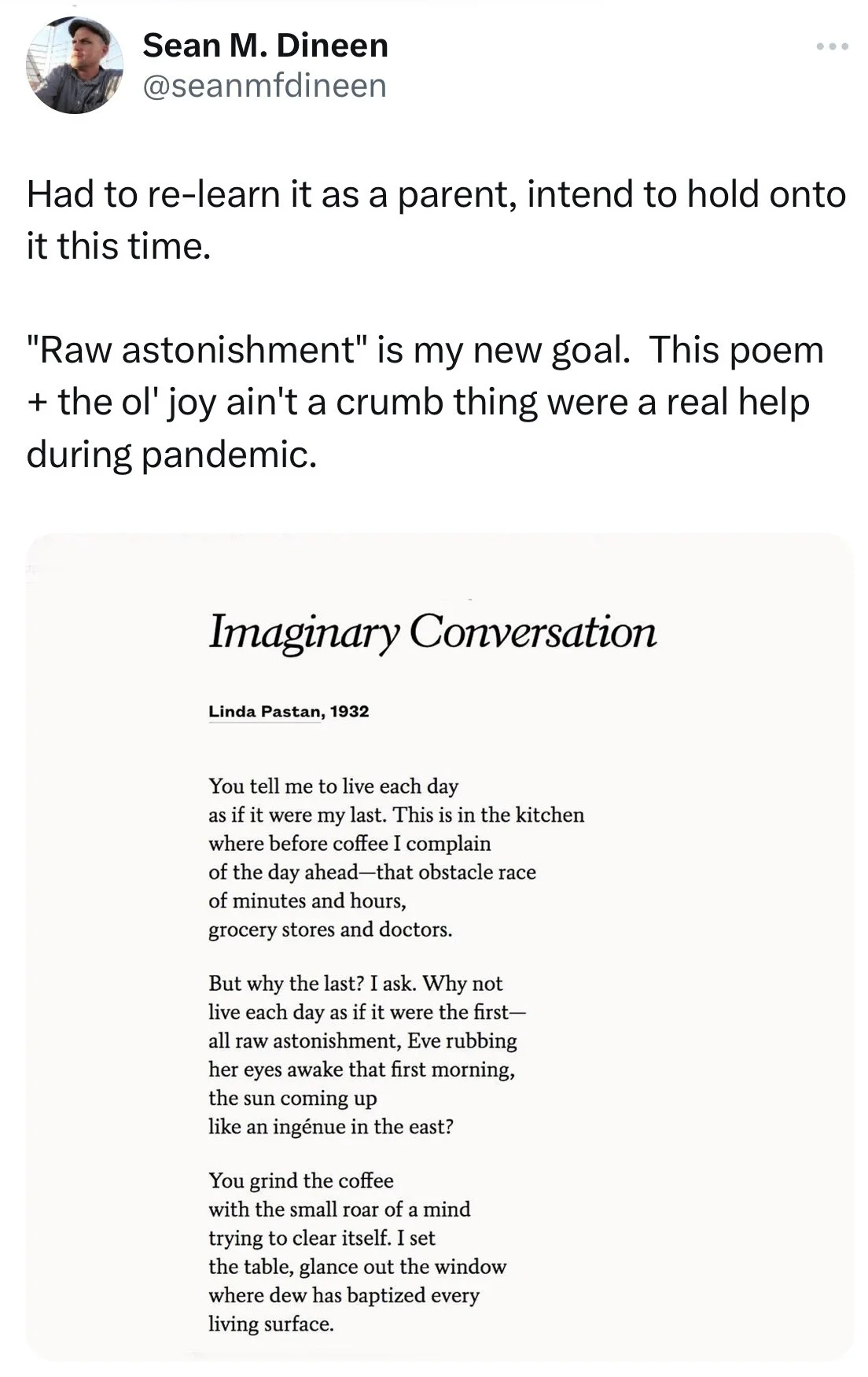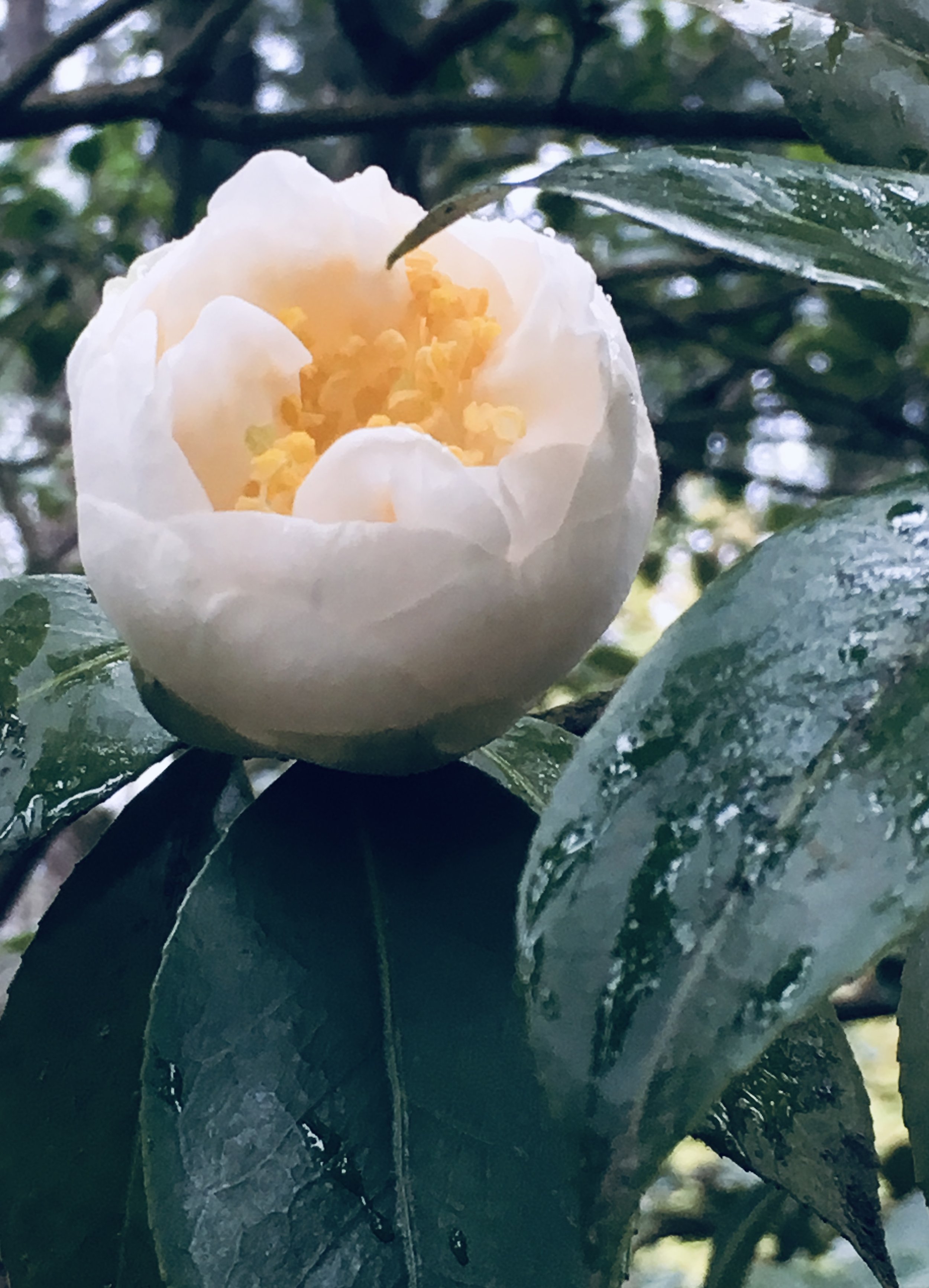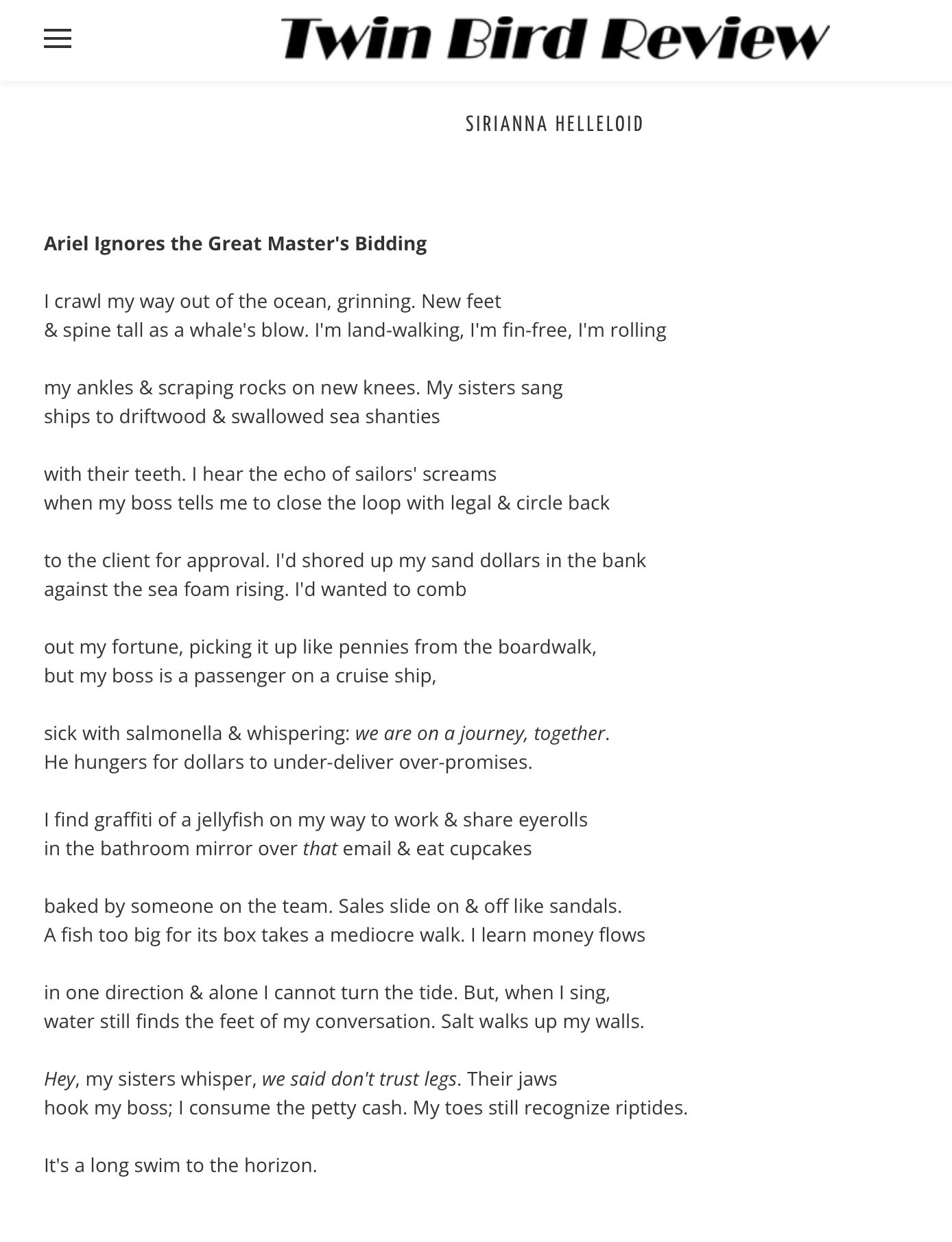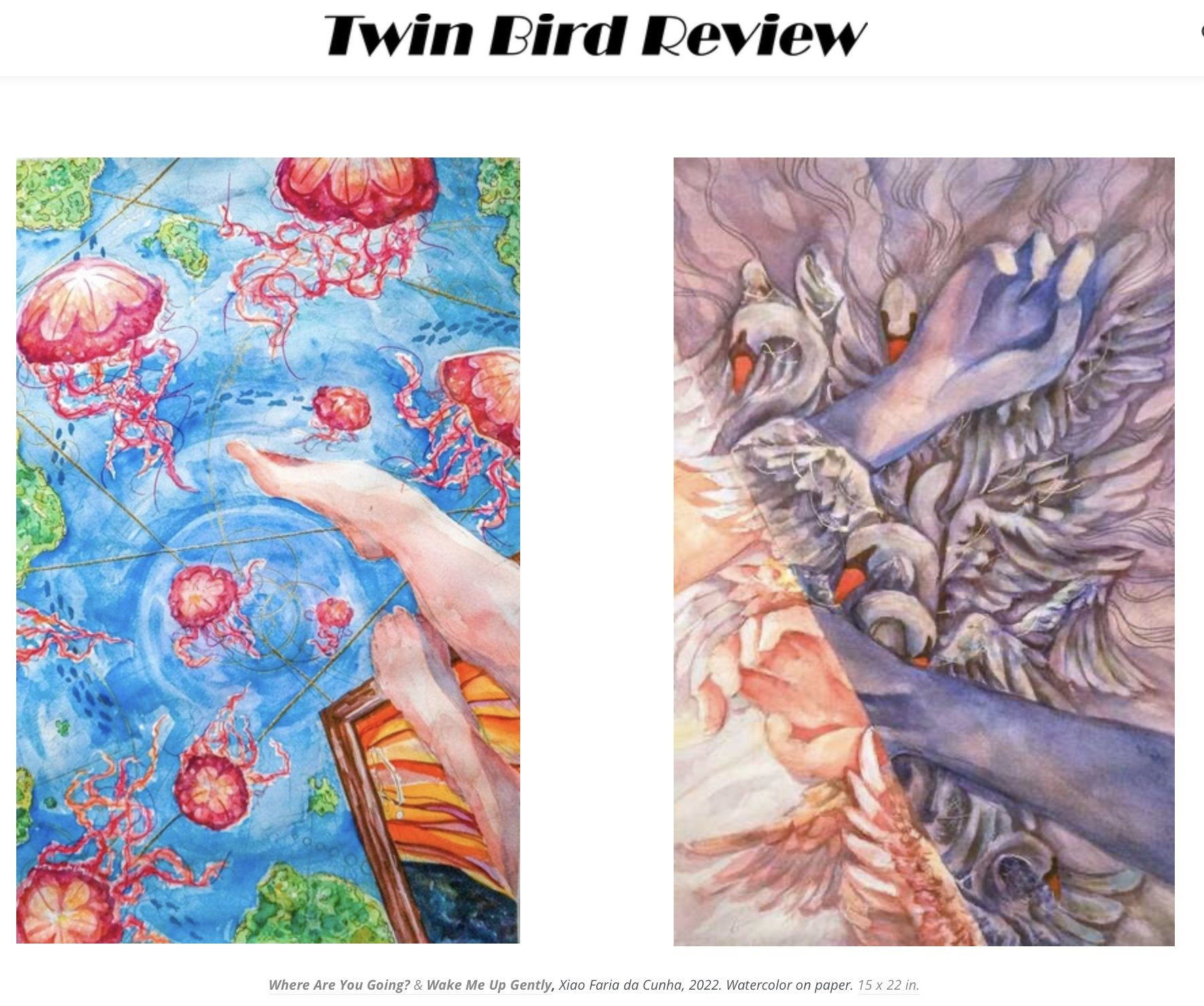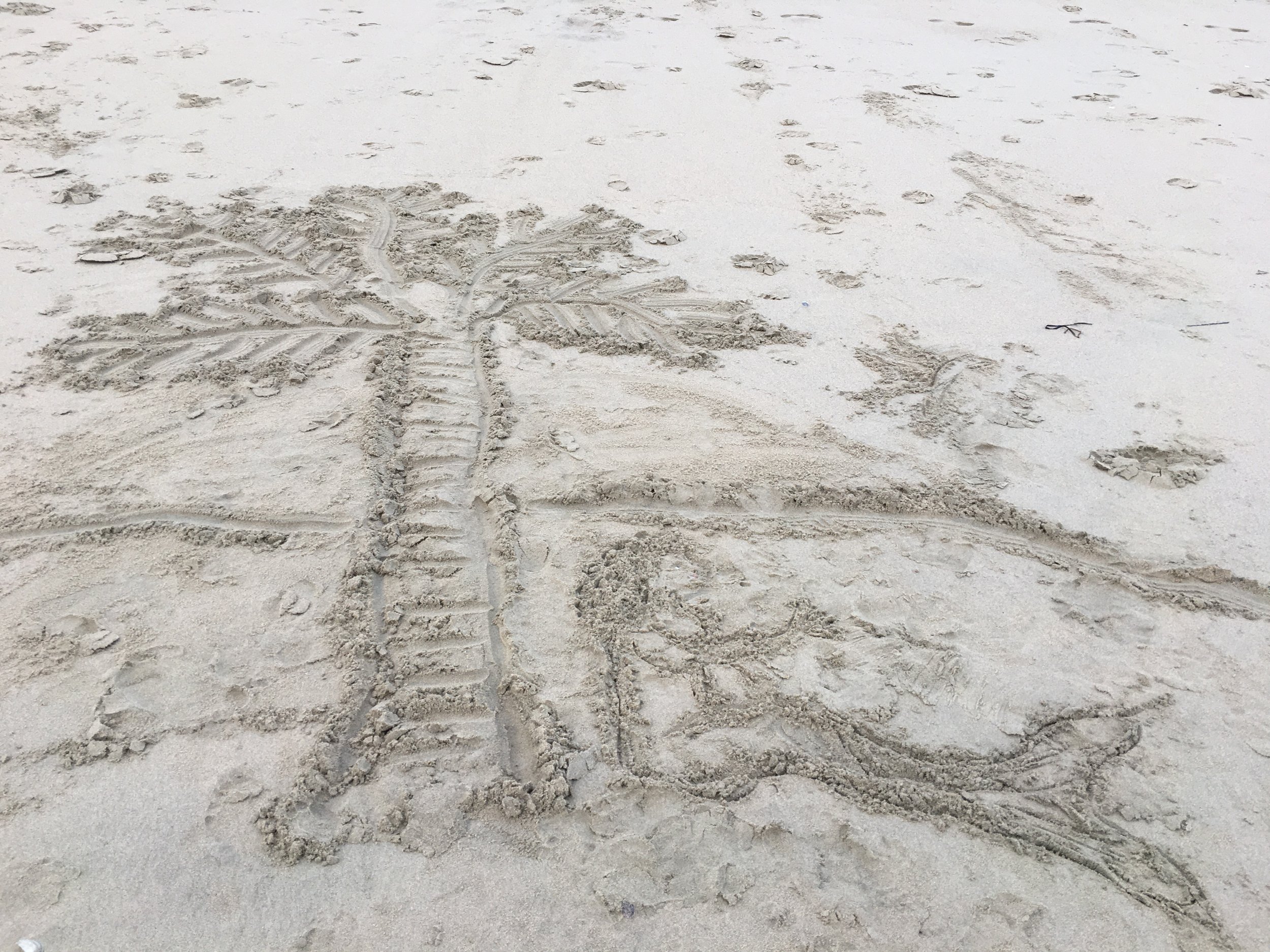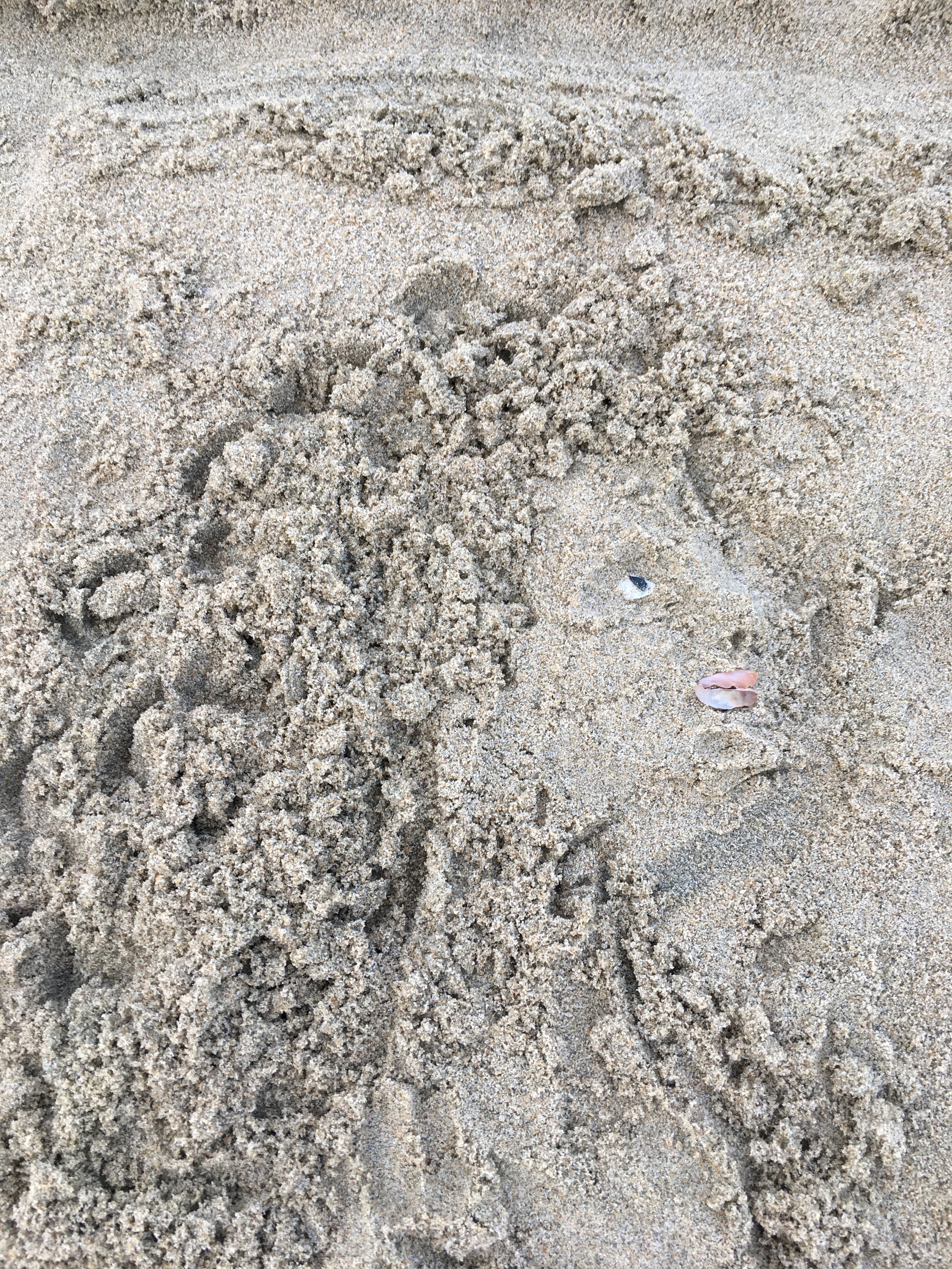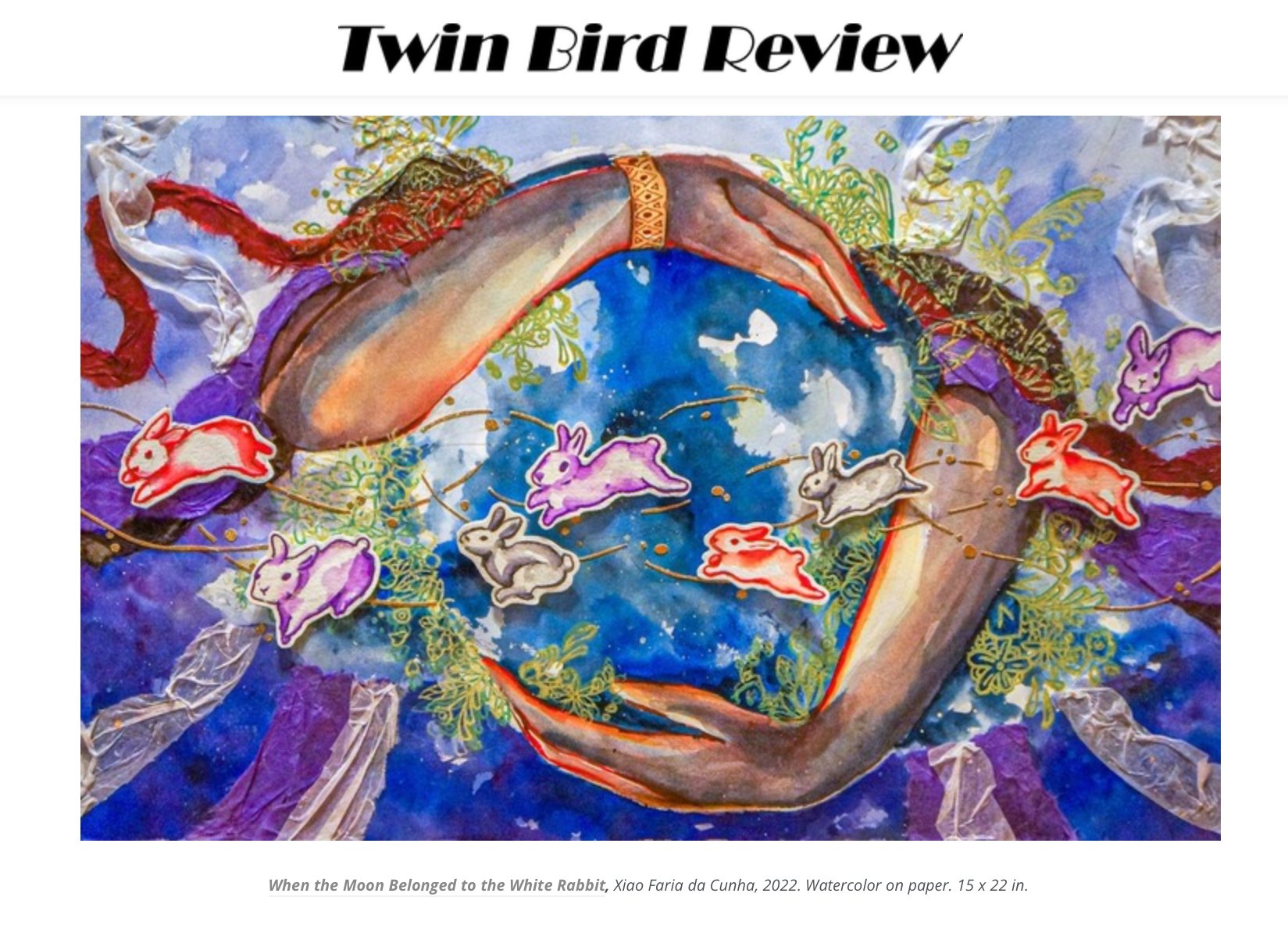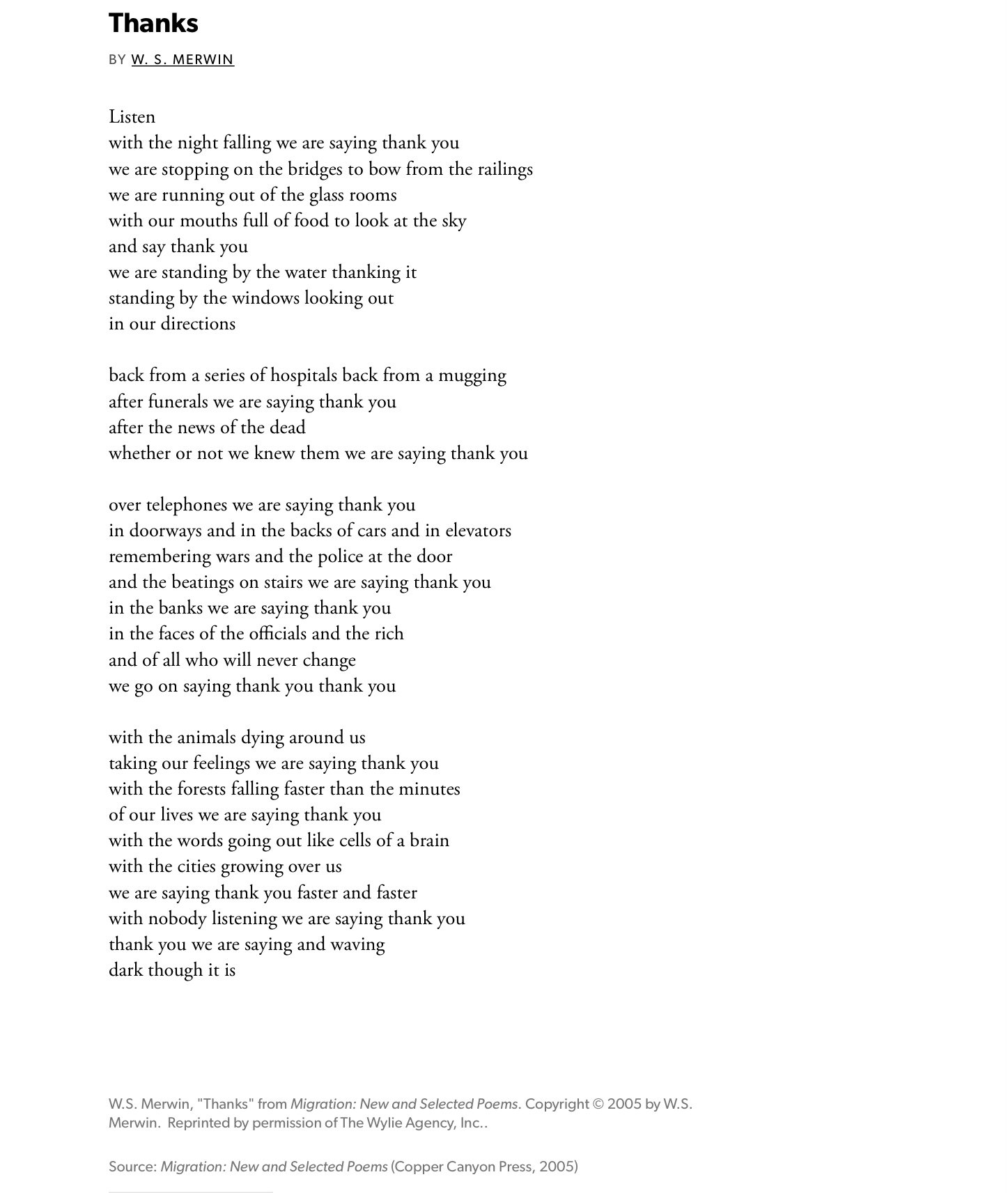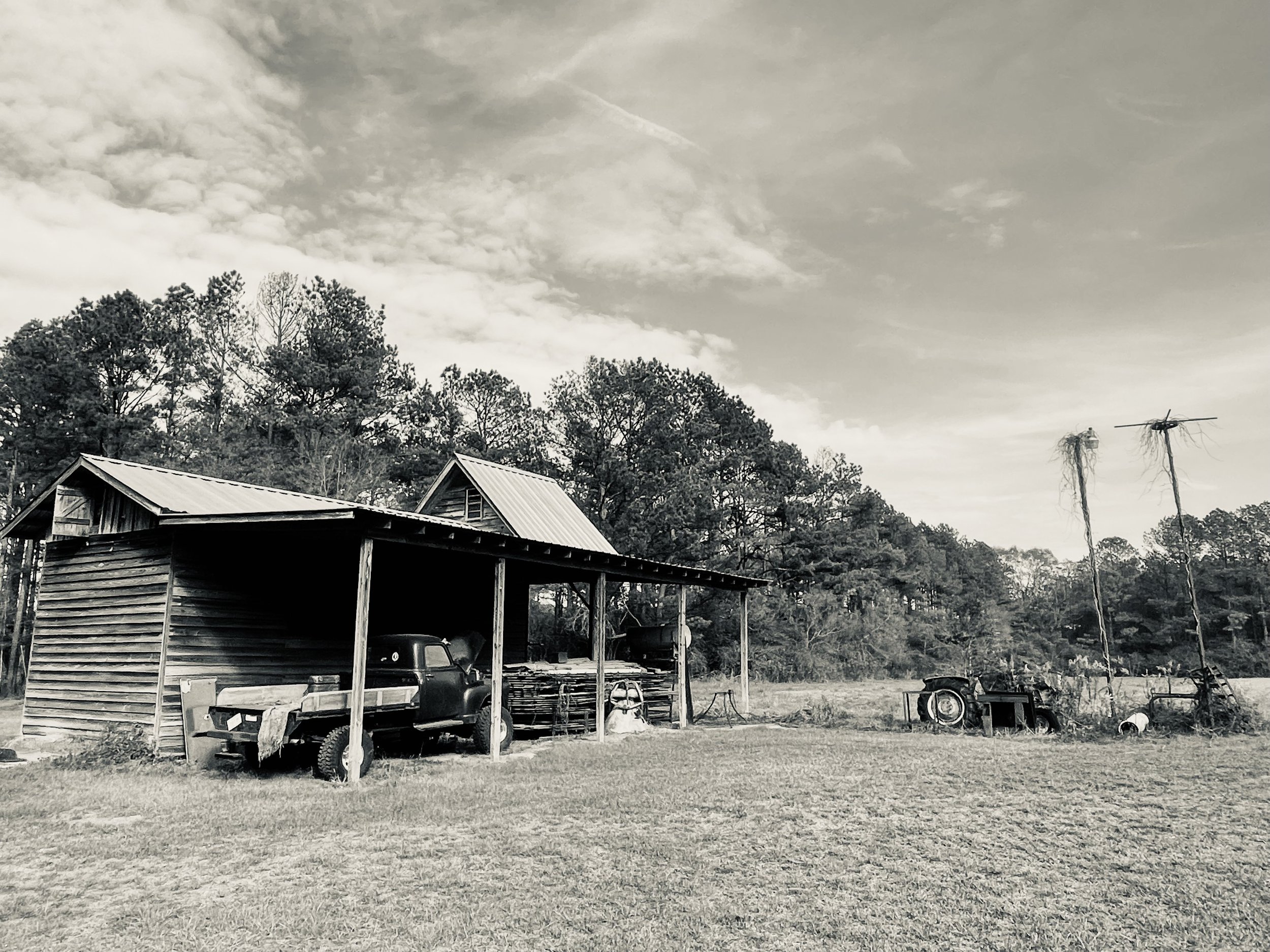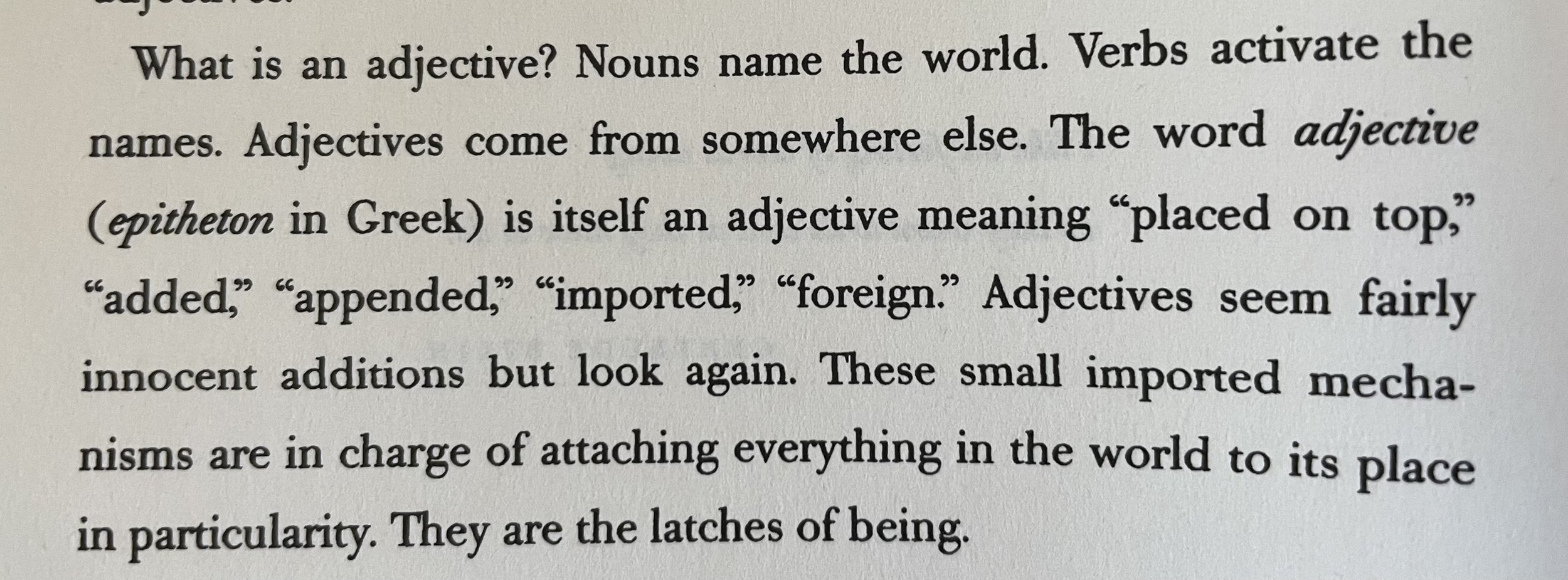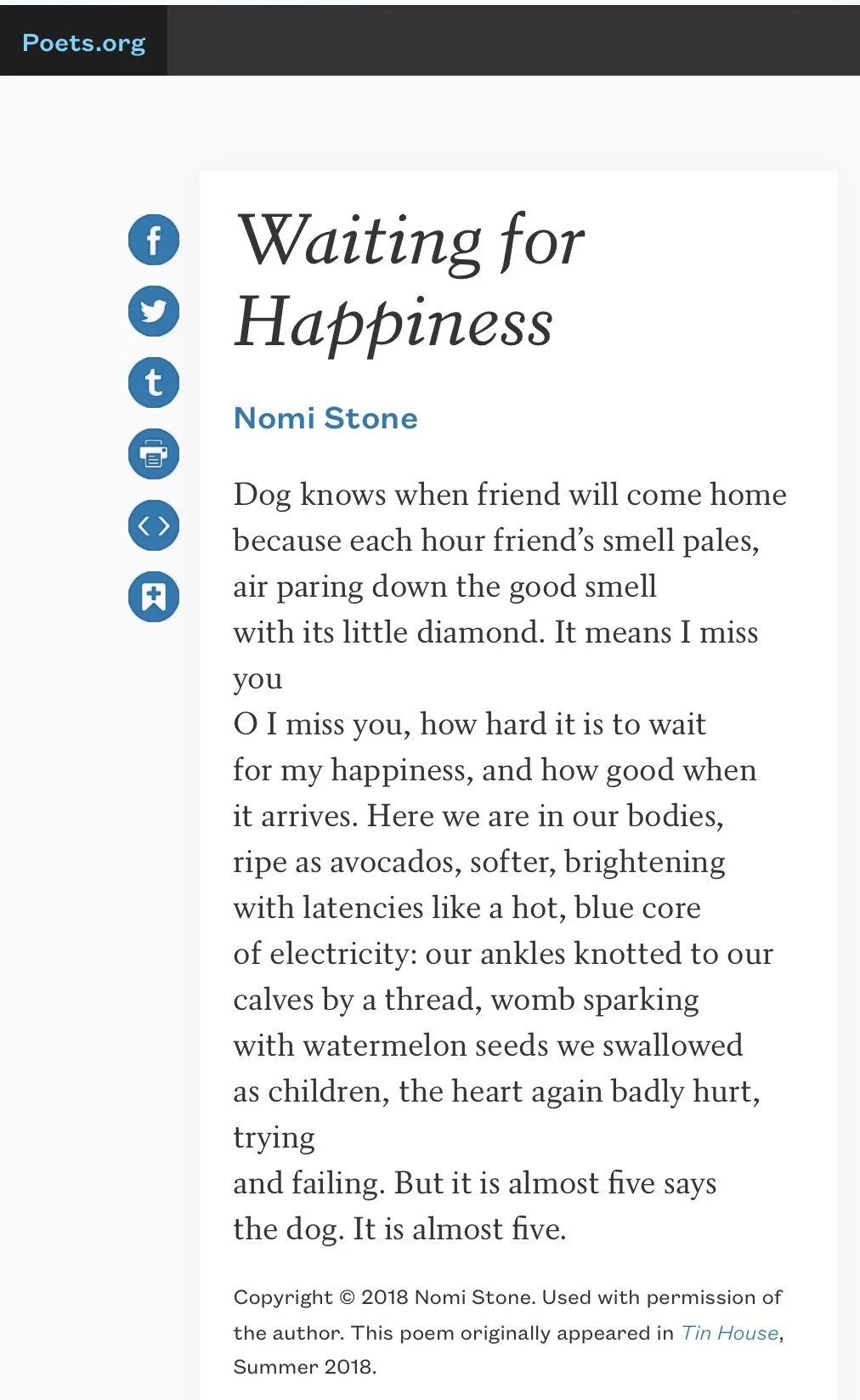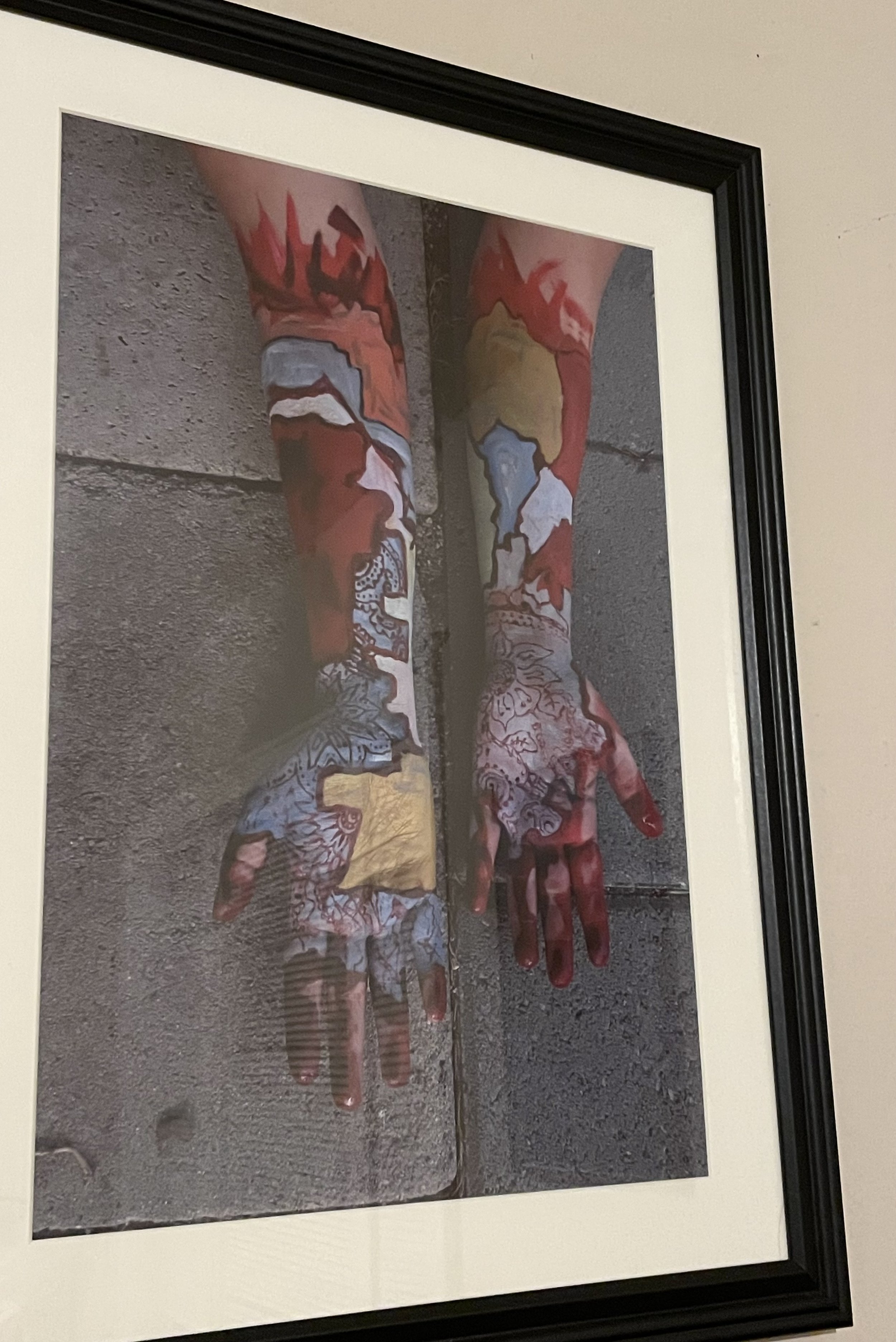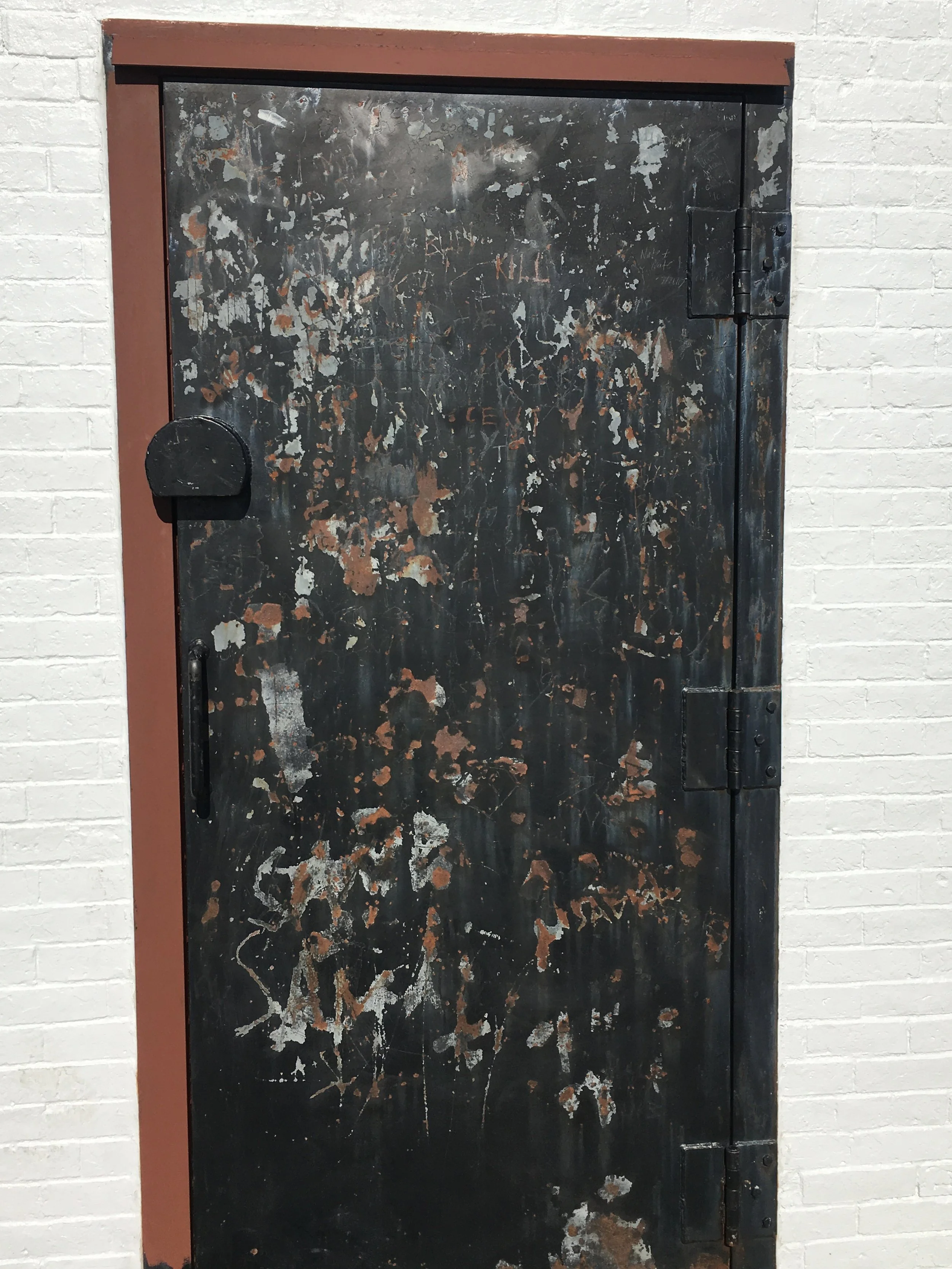Love is such a powerful emotion but so difficult to convey uniquely. Love poems, their language and imagery, often are clichéd and stale especially if abstract and general. Rather than grand proclamations, small personal details often are more effective in showing the passion or caring in a relationship, as demonstrated so beautifully by Paige Lewis here. Btw, you can hear the poem read their poem on the site of the American Academy of Poets if you wish.
For the first prompt, write about a game or joke shared between you and a partner or between two characters. Use everyday language and description rather than metaphors or dramatic language. Avoid using the word “love” directly.
The second prompt is to write a story or poem using the following words: “paints,” “ties,” “corners,” “shadow,” “machine,” “game,” “stretch,” “bed,” “grips” and “kisses.” Try to switch the nouns for verbs and vice versa.
The third prompt does not need to create a love poem or story; just use the line “Our shadows get dirty just like anyone’s, so we take them” as a ghostline. See where it takes you. Remember to erase the line and credit the poet for the inspiration.
The last prompt is to use the line “and watch our shadows warm” for a horror-themed poem or story. Again remember to erase the ghostline and credit the poet.
Bonus prompt: write a poem based on this image.
Good luck writing! Have fun!

